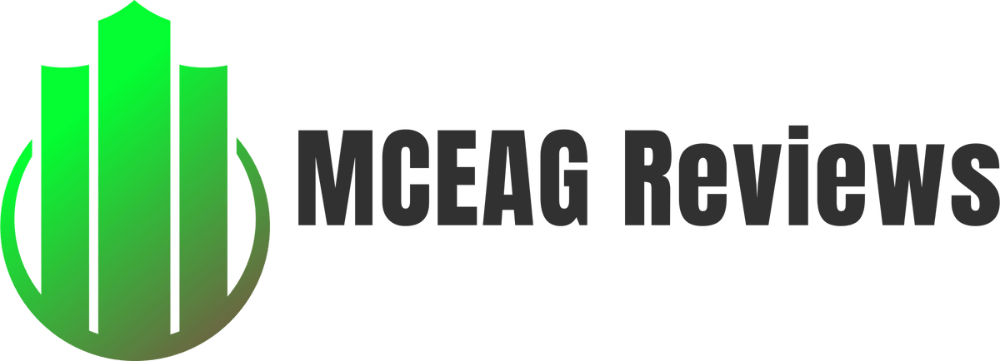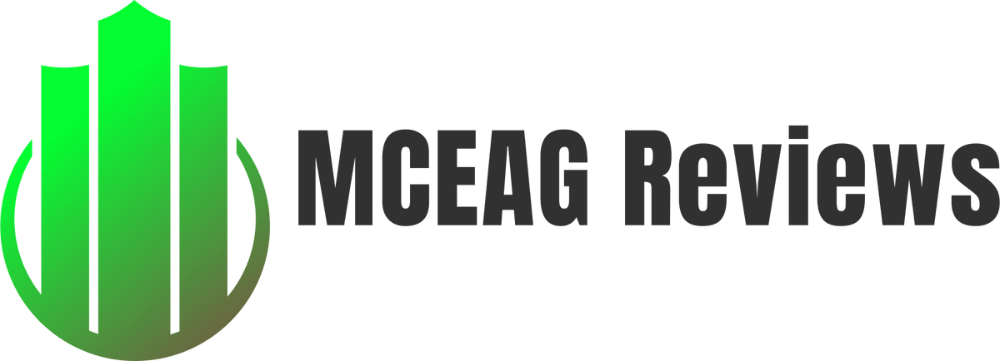Exploring the best AI tools for career development is more than a strategic move in today’s job market—it’s a necessity for those looking to stay ahead. With artificial intelligence set to revolutionize the workplace, creating millions of new jobs and transforming current roles, professionals must leverage AI to enhance their skills, productivity, and career prospects. Imagine having tools that automate routine tasks, offer insights into industry trends, and personalize your learning experience, all contributing to a significant competitive edge. This guide, “The Future of Work: Leveraging the Best AI Tools for Career Development,” is your gateway to harnessing AI’s power for a transformative career journey. Join us as we dive into the future of work, equipped with the knowledge and tools to take your career to new heights.
Table of Contents
Understanding the Basics of the Best AI Tools for Career
In the rapidly evolving professional landscape, the integration of artificial intelligence (AI) tools is no longer a futuristic concept but a present-day necessity for career advancement. This section dives into the basics of the best AI tools for career development, shedding light on what these tools are and how they can significantly propel your career forward.
What Are AI Tools?
AI tools encompass a broad range of technologies powered by artificial intelligence designed to simulate human intelligence processes by machines, particularly computer systems. These tools can perform tasks that typically require human intelligence, such as understanding natural language, recognizing patterns, solving problems, and learning from data. In the context of career development, AI tools range from resume builders that optimize your resume for applicant tracking systems (ATS) to sophisticated learning platforms that adapt to your learning style and pace.
AI in the workplace is no longer just about efficiency; it’s about personalization, insight, and the capacity to make informed decisions faster than ever before. The best AI tools for career purposes leverage machine learning, natural language processing, and predictive analytics to provide tailored advice, automate mundane tasks, and highlight trends and opportunities in your field.
How Can AI Tools Propel Your Career?
AI tools offer unprecedented advantages in career development, enabling professionals to not only enhance their skills but also gain insights into their industry’s future. These tools can automate routine tasks, freeing up time for more strategic activities that can lead to career growth. For instance, AI-powered analytics tools can analyze job market trends and identify skill gaps, suggesting personalized courses and certifications.
Moreover, AI can significantly improve networking and job searching. Platforms leveraging AI can suggest the most beneficial connections and opportunities based on your career goals, skills, and experiences, making the process more targeted and efficient. AI-driven personal development tools can also help in identifying strengths and weaknesses, offering customized development plans to enhance your professional profile.
Incorporating references to authoritative sources like Gartner or Forbes, which predict AI’s role in creating millions of new jobs and transforming industries, underscores the importance of these tools in career advancement. As these studies suggest, understanding and leveraging AI tools is not just about keeping pace with technological advancements but about securing a competitive edge in your career.
With a foundational understanding of what AI tools are and their capacity to enhance career trajectories, the next step is exploring how these tools can be tailored to specific professional paths. Whether you’re looking to advance in your current role or pivot to a new field, the subsequent sections will guide you through selecting and utilizing the best AI tools for your career growth.
Essential AI Tools Every Professional Must Explore
In the journey of career advancement, certain AI tools stand out for their ability to significantly enhance professional skills and insights. This section explores essential AI tools that every professional should consider incorporating into their arsenal. These tools not only streamline tasks but also offer deep insights into one’s work, fostering a culture of continuous improvement and strategic planning.
Language Enhancement Tools
In today’s global work environment, effective communication is key to success. Language enhancement tools are among the best AI tools for career growth, helping professionals polish their writing to be more persuasive, clear, and error-free. Tools like Grammarly and Hemingway Editor use AI to analyze text for grammar, style, and tone, offering suggestions that refine your writing, from emails and reports to presentations and proposals. These platforms also provide valuable feedback on readability, helping ensure your message is effectively conveyed to its intended audience.
Moreover, AI-powered language learning apps such as Duolingo and Babbel personalize the language learning experience, adapting to your learning speed and style. This personalized approach helps professionals quickly acquire new languages, an invaluable skill in today’s diverse business landscape.
Data Analysis and Visualization Tools
Data is the lifeblood of decision-making in the modern business world. AI tools specializing in data analysis and visualization empower professionals to make informed decisions by interpreting complex datasets with ease. Tools like Tableau and Microsoft Power BI use AI to transform raw data into visually appealing and easy-to-understand reports and dashboards. These insights can uncover trends, patterns, and correlations that might not be apparent from looking at numbers alone, allowing professionals to identify opportunities for growth and areas in need of improvement.
Furthermore, machine learning platforms like Google’s TensorFlow and IBM Watson provide the framework for building custom data analysis models. These models can predict outcomes based on historical data, offering invaluable foresight into customer behavior, market trends, and operational efficiencies. For professionals looking to leverage data for strategic advantage, mastering these tools can be a game-changer.
While direct links to these tools and user reviews are beyond this format’s capability, a quick online search will lead you to their official websites, where you can find comprehensive information and firsthand insights from users. Exploring these resources will give you a better understanding of how each tool fits into your career development plan.
With a toolkit comprising both language enhancement and data analysis capabilities, professionals are well-equipped to navigate the complexities of the modern workplace. The next sections will delve into how AI tools can be customized to fit various career paths, further enhancing their utility and impact on your professional growth.
Tailoring AI Tools to Your Career Path
The versatility of AI tools means that, regardless of your profession or industry, there are applications designed to optimize your workflow, enhance your skills, and open new opportunities for growth. This section explores how to tailor the best AI tools for career advancement to specific career paths, ensuring that every professional can leverage the right technologies to achieve their objectives.
Best AI Tools For Career Creatives
Creatives in fields such as design, writing, and media production can greatly benefit from AI tools that enhance creativity and streamline the production process. Tools like Adobe Sensei leverage AI to automate tedious aspects of the creative process, such as resizing images for different platforms, enhancing photo quality, and even suggesting design layouts. For writers, AI-powered writing assistants can generate creative content ideas, suggest tone adjustments, and ensure language is engaging for the intended audience.
Furthermore, AI tools like Canva’s Magic Resize and Grammarly’s tone detector help maintain brand consistency across various platforms while ensuring messages resonate with the audience. These tools are indispensable for creatives looking to elevate their work and engage more effectively with their audiences.
Best AI Tools For Career Analysts
For professionals in data-driven roles, including market researchers, financial analysts, and business intelligence specialists, AI tools are revolutionizing how data is interpreted and utilized. Data analysis and visualization tools like Tableau and Power BI, mentioned earlier, are just the starting point. More advanced AI applications, such as SAS’s advanced analytics and IBM Watson, offer deeper insights through predictive analytics and machine learning, enabling analysts to forecast trends, identify market opportunities, and make data-backed decisions with greater confidence.
Incorporating AI into data analysis not only enhances accuracy but also significantly reduces the time spent on data processing, allowing analysts to focus on strategic decision-making and innovation.
Best AI Tools For Career Educators
In the education sector, AI tools are transforming how knowledge is delivered and personalized for students. Platforms like Coursera and Khan Academy use AI to tailor learning experiences based on individual student needs, preferences, and performance, making education more accessible and effective. AI-powered tools such as Grammarly assist in developing writing skills, while platforms like Duolingo make language learning more interactive and fun.
Additionally, AI-driven analytics tools enable educators to monitor student progress in real-time, identifying areas where students struggle and adapting teaching methods accordingly. These tools not only support personalized learning but also empower educators to make data-informed decisions to improve educational outcomes.
By understanding how to apply the best AI tools for career advancement within your specific field, you can unlock new levels of productivity, creativity, and insight. As we continue to explore the integration of AI in professional development, the next sections will delve into advanced strategies for leveraging these tools, ensuring you’re equipped to navigate the future of work successfully.
Advanced Strategies for Integrating Best AI Tools into Your Daily Work
Embracing the best AI tools for career enhancement involves more than just understanding what these tools can do; it requires strategically integrating them into your daily work. This section provides advanced strategies for using AI to automate routine tasks and enhance decision-making processes, fundamentally changing how you approach your career development.
Automating Routine Tasks
One of the most immediate benefits of AI is its ability to automate repetitive, time-consuming tasks. This automation allows professionals to focus on more complex, creative, or strategic activities that add greater value to their roles. For example, AI-powered tools like Zapier and Microsoft Power Automate can streamline workflows by connecting different apps and services, automating tasks such as data entry, email responses, and social media updates.
Furthermore, natural language processing tools can manage your inbox, prioritizing emails and even drafting responses. Similarly, AI scheduling assistants, such as x.ai, can automate meeting scheduling, finding suitable times for all participants without the endless back-and-forth emails. By automating these routine tasks, professionals can reclaim valuable time, reduce errors, and increase efficiency.
Enhancing Decision Making with AI
AI’s ability to analyze vast amounts of data and provide predictive insights can significantly enhance decision-making. Tools that specialize in data analysis, like IBM’s Watson or Google Cloud AI, can uncover trends, predict market movements, and provide actionable insights that might not be immediately apparent. This advanced analysis enables professionals to make more informed decisions, backed by data.
For those looking to leverage AI for decision-making, it’s important to start with clear objectives and understand the kinds of decisions AI can support. From there, exploring tools that offer predictive analytics in your specific field can open up new possibilities for strategic planning and foresight.
Interactive Element: Find Your AI Match
To help you identify which AI tools could best enhance your workflow and decision-making, consider engaging with our interactive quiz: “Discover Your Ideal AI Tools for Career Advancement.” This quiz takes into account your profession, daily tasks, and key challenges to recommend personalized AI solutions that can automate routine tasks and support decision-making.
By taking the quiz, you’ll gain insights into specific AI tools tailored to your needs, helping you streamline your workflow and enhance your career development strategy. Whether you’re looking to improve productivity, make more data-driven decisions, or simply stay ahead of the curve, the right AI tools can set you on the path to success.
Mistakes to Avoid When Choosing AI Tools for Your Career
In the quest to leverage the best AI tools for career enhancement, it’s crucial to navigate the landscape with a strategic mindset. While AI offers immense potential for professional growth, certain pitfalls can undermine its benefits. This section outlines common mistakes to avoid when choosing AI tools for your career and offers guidance on how to sidestep these potential setbacks.
Over-Reliance Without Understanding
A common mistake many professionals make is over-relying on AI tools without a full understanding of how they work or their limitations. While AI can automate tasks and provide insights, it’s essential to remember that these tools are aids, not replacements for professional judgment and expertise. Blind trust in AI without comprehension can lead to misinformed decisions or misuse of the technology.
To avoid this, ensure you have a foundational understanding of the AI tools you integrate into your work. Take advantage of tutorials, webinars, and online courses offered by tool providers. Moreover, staying informed about the latest AI developments in your field can help you use these tools more effectively and responsibly.
Ignoring Privacy and Security Concerns
Another critical oversight is neglecting the privacy and security implications of using AI tools. With increasing concerns over data breaches and misuse of personal information, it’s paramount to choose AI solutions that adhere to strict privacy and security standards. Neglecting these aspects can jeopardize not only your personal data but also sensitive corporate information.
Before adopting any AI tool, conduct thorough research into its privacy policies and security features. Look for tools that are compliant with major data protection regulations, such as GDPR in Europe or CCPA in California. Additionally, consulting IT professionals or cybersecurity experts within your organization can provide insights into the best practices for secure tool usage.
Expert Advice on Secure AI Tool Usage
For further guidance on ensuring the secure and responsible use of AI tools, consider exploring resources from reputable cybersecurity organizations. Websites like the Electronic Frontier Foundation (EFF) or the International Association for Privacy Professionals (IAPP) offer valuable tips and updates on navigating privacy concerns in the digital age.
By being mindful of these mistakes and adopting a proactive approach to learning and security, professionals can fully harness the potential of AI tools for career advancement without falling into common pitfalls. This mindful approach not only enhances your professional toolkit but also ensures a responsible and secure integration of AI into your career development strategy.
Measuring the Impact of AI Tools on Your Career Growth
Integrating the best AI tools for career advancement is a strategic move that can open doors to new opportunities and streamline your workflow. However, to truly maximize the benefits of these tools, it’s crucial to measure their impact on your career growth effectively. This section outlines strategies for setting realistic goals, tracking progress, and adjusting your approach to ensure you’re getting the most out of AI in your professional journey.
Setting Realistic Goals
The first step in measuring the impact of AI tools is to set clear, realistic goals for what you hope to achieve with their help. Whether it’s improving productivity, mastering a new skill, or expanding your professional network, having specific objectives in mind will allow you to tailor your use of AI tools accordingly and measure success in tangible terms.
When setting goals, apply the SMART criteria—making sure they are Specific, Measurable, Achievable, Relevant, and Time-bound. For example, instead of a vague goal like “improve networking,” a SMART goal would be “use AI-driven networking tools to connect with at least 30 new professionals in my field within the next three months.”
Tracking Progress and Adjusting Strategies
With your goals set, the next step is to track your progress towards achieving them. Many AI tools come with built-in analytics and reporting features that can help you monitor your performance over time. For instance, if your goal is to enhance productivity, tools like Toggl or RescueTime can provide detailed reports on how you’re spending your time and where efficiencies can be gained.
It’s also important to seek feedback on the impact of AI tools on your work, whether from colleagues, mentors, or through self-reflection. This feedback can provide insights into areas where AI is making a significant difference and where adjustments may be needed.
As you track your progress, be prepared to adjust your strategies. If you find that an AI tool is not contributing to your goals as expected, consider exploring alternative solutions or revisiting your goals to ensure they’re still aligned with your career aspirations.
Methods for Assessing Effectiveness:
- Quantitative Metrics: Depending on your goals, these could include the number of new connections made, hours saved through automation, or an increase in output or sales.
- Qualitative Feedback: Regularly solicit feedback on your work quality, creativity, or other subjective measures of success to gauge the impact of AI tools.
- Personal Reflection: Set aside time for regular self-assessment to reflect on your personal development and satisfaction with your career progress.
By systematically setting goals, tracking progress, and adjusting your approach, you can ensure that the best AI tools for career are not just a part of your professional toolkit but a driving force behind your career growth.
Future Trends: AI Tools on the Horizon
As we look toward the future, the landscape of the best AI tools for career advancement is rapidly evolving, promising even more sophisticated technologies that can further transform professional landscapes. This section explores emerging technologies in the AI sphere and provides guidance on how professionals can prepare for the next wave of innovations, ensuring they remain at the forefront of their fields.
Emerging Technologies
The horizon of AI technologies is brimming with potential, set to introduce tools that are more intuitive, predictive, and capable of handling complex tasks with unprecedented efficiency. One such area of advancement is in natural language processing (NLP), where AI is becoming increasingly adept at understanding and generating human language in a way that is more natural and context-aware. This progression will significantly enhance tools for content creation, customer service, and language translation, making them more effective and versatile.
Another exciting development is in the realm of AI-driven personal assistants. Future iterations are expected to go beyond simple task automation and scheduling to offer more nuanced support, such as career coaching or personalized learning management, based on an in-depth understanding of an individual’s career goals, preferences, and learning style.
Augmented reality (AR) and virtual reality (VR) combined with AI are set to revolutionize training and development programs. By simulating real-world scenarios, these tools can offer immersive learning experiences that are highly effective for skill acquisition and retention, particularly in fields requiring hands-on expertise.
Preparing for the Next Wave of AI Tools
To stay ahead in a world where AI tools are constantly evolving, professionals must adopt a mindset of continuous learning and adaptability. Here are some strategies to prepare for the next wave of AI innovations:
- Stay Informed: Regularly follow tech news and professional forums in your field to stay updated on the latest AI developments and how they’re being applied in your industry.
- Upskill Continuously: Invest in learning and development opportunities that not only enhance your current skill set but also prepare you for future technologies. Consider courses in data literacy, AI fundamentals, or emerging tech trends relevant to your profession.
- Build a Flexible Toolkit: Rather than relying on a single AI tool or platform, cultivate a versatile toolkit that can adapt to new technologies as they emerge. This approach ensures you can seamlessly integrate new tools into your workflow without disrupting your productivity.
- Network with Innovators: Engaging with a community of tech enthusiasts and innovators can provide insights into how emerging AI tools are being used creatively in different sectors. Attend tech meetups, webinars, and conferences to connect with individuals at the cutting edge of AI development.
By embracing these strategies, professionals can ensure they’re not just keeping pace with the advancements in AI but are ready to leverage the best AI tools for career growth as they come. The future of work is bright with the promise of AI innovations, and preparing for these trends will position you to make the most of the opportunities they bring.
As we’ve navigated through the intricacies of leveraging the best AI tools for career advancement, it’s clear that the future of work is not just influenced by technological innovation but is being reshaped by it. From enhancing daily productivity and decision-making processes to preparing for the seismic shifts promised by emerging technologies, AI tools are at the heart of a professional revolution. They offer not just a pathway to efficiency and skill enhancement but also a blueprint for continuous growth and adaptability in an ever-evolving job market.
However, the journey doesn’t end here. The key to truly capitalizing on these tools lies in a proactive approach—staying informed, continuously learning, and being ready to adapt to new advancements as they arise. As you look to integrate AI into your professional life, remember that the ultimate goal is not just to automate tasks but to unlock your full potential and pave the way for unprecedented career growth.
Now is the time to take the next step in your professional journey. Dive deeper into the AI tools that resonate with your career goals, experiment with new technologies, and connect with communities of like-minded professionals who are also exploring the possibilities AI offers. Whether you’re just starting to explore the potential of AI tools or looking to expand your existing toolkit, the opportunity for growth and advancement is immense.
Don’t wait for the future to come to you—shape it with the best AI tools for your career. Start today, and see where the journey takes you.
FAQ: Best AI Tools for Career
1. What are the best AI tools for career advancement? The best AI tools for career advancement include language enhancement tools like Grammarly, data analysis tools like Tableau, AI-driven networking platforms like LinkedIn, and personal development tools like Coursera. The ideal toolkit varies depending on your career goals and industry.
2. How can AI tools help me in my job search? AI tools can optimize your resume for applicant tracking systems (ATS), suggest jobs based on your skills and preferences, and even prepare you for interviews with mock interview platforms. They streamline the job search process, making it more efficient and targeted.
3. Are AI tools only useful for tech-related careers? No, AI tools are beneficial across a broad spectrum of industries, from creative fields like design and writing, to data-driven roles in finance and marketing, and even in education and healthcare. They offer productivity enhancements, skill development, and analytical insights applicable to various professions.
4. How can I measure the impact of AI tools on my career growth? Measure the impact by setting specific, measurable goals related to your use of AI tools, such as saving time on tasks, expanding your professional network, or achieving a learning milestone. Track your progress over time and adjust your strategies as needed to ensure you’re gaining tangible benefits.
5. Can over-relying on AI tools be detrimental to my career? While AI tools offer significant advantages, over-reliance without understanding their functionality or without maintaining your professional judgment can be detrimental. It’s important to view AI tools as aids to your career development rather than replacements for your skills and expertise.
6. How do I stay updated on the latest AI tools and trends? Follow tech blogs, subscribe to newsletters from AI research institutions and companies, join relevant online communities, and participate in webinars and conferences. Continuous learning and networking with professionals in the AI space are key to staying informed.
7. What should I consider when choosing AI tools for my career? Consider the tool’s relevance to your career goals, its ease of use, privacy and security features, and its integration with other tools you use. Also, look for reviews and case studies to gauge its effectiveness and ROI for others in your field.
8. How can I prepare for the future trends in AI tools? Focus on building a solid foundation in digital literacy and AI basics, stay adaptable by continuously learning new skills, and keep an open mind about experimenting with emerging technologies. Networking with innovators and attending tech-focused events can also provide insights into future trends.
By addressing these common queries, we hope to have clarified how the best AI tools for career can serve as pivotal assets in your professional toolkit, offering a competitive edge in today’s dynamic job market.





